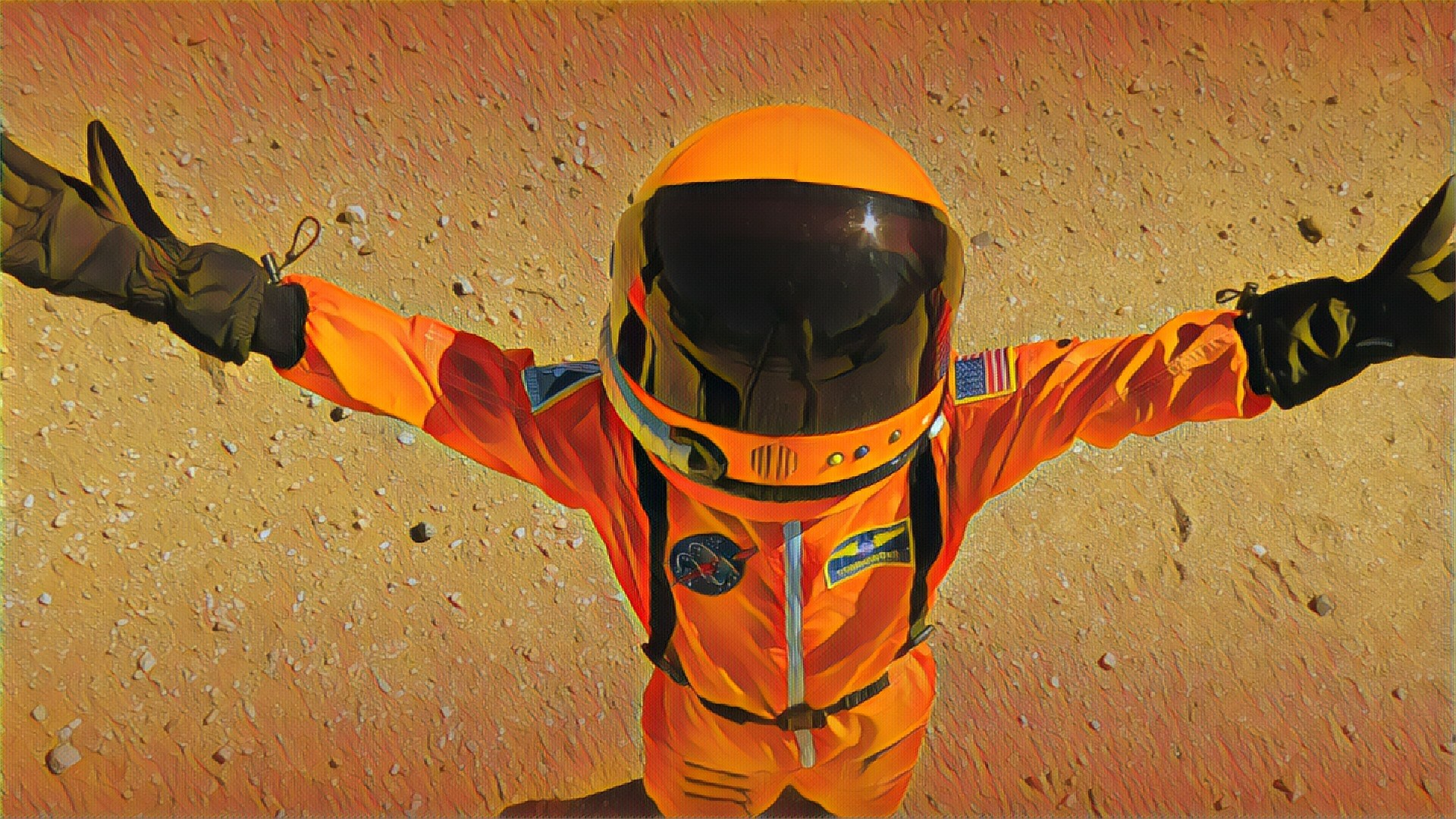Apollo 8 lifted off fifty years ago today, taking humans to orbit the Moon for the first time. This was also the first time a Saturn V carried humans. Originally scheduled as a test flight for orbital reentry, Russian successes prompted a revision of plans and 16 weeks later Apollo 8 lifted off to carry Frank Borman, Jim Lovell, and William Anders around the Moon.
Video clip 12: Parenting from scratch
This one touches on a parenting philosophy I’ve tried to follow since the birth of my oldest daughter and takes that to a new world.
background: illustration for Scratching the Surface by Luis Peres.
SpaceX Falcon 9 water landing
Insight – Sol 0
I’m looking at this image and thinking about all the scientists and engineers and technicians involved in the design and assembly of this equipment. How remarkable it must feel to look at this image of their creation sitting on Mars, ready to get to work. Kudos! I mean… wow.
Video clip 11: In their lifetimes
background: NASA/JPL-Caltech
Video clip 10: I can be a part
background: images and illustrations from SpaceX, Boeing, and NASA
Video clip 09: What will their life be like?
background: Official logo for Generation Mars
Video clip 08: Frontier creativity
background: illustration for Scratching the Surface by Luis Peres
The beginning of history…
Here’s the latest talk from Robert Zubrin. He discusses some of the key points from his book, The Case for Mars, and how recent advances in the space industry affect them.
“We’re living at what future ages will regard as the beginning of history, and I would suggest we get on with it.”
Video clip 07: Unpredictable but certain
background: Dawn Colony mission badge




